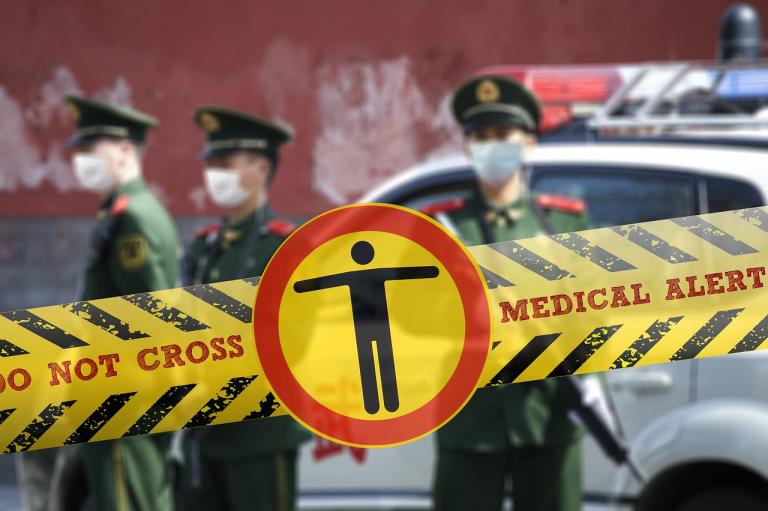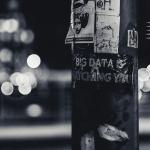Dr. Li Wenliang, who worked in a hospital in Wuhan, China, was one of the first physicians to identify and to issue a warning about the coronavirus.
Shortly after sharing his observations on a social media site with other doctors, he was arrested by the police. They charged him with “spreading rumors” and other “illegal activities” and forced him to retract what he said, apologize, and admit to “illegal behavior.”
Now Dr. Li has died–of coronavirus, which he contracted while caring for coronavirus patients.
Dr. Li’s story has provoked public outrage against the Communist government for first trying to cover up the epidemic and then dealing with it in inept and heavy-handed ways.
Now the government is taking the virus very seriously indeed, exercising its authoritarian powers in an attempt to halt the disease. Not only Wuhan, a city of 14 million, but its whole province of 50 million, are in a state of lockdown. Workplaces are closed, public transportation is shut down, and citizens have to stay in their homes, where they must deal with a shortage of food. Officials are going door-to-door to take people’s temperatures in an effort to identify those who are infected. Whereupon they are rounded up–sometimes dragged from their homes–and taken to mass quarantine camps.
China is also using its high-tech surveillance system, designed to keep tabs on its citizen’s activities, to combat the virus. The system is being used to identify and apprehend quarantine violators, as well as those who ignore travel bans. One of the technologies can reportedly measure the temperature of individuals in a crowd, so as to spot those who might be infected so that they can be spirited away to the camps.
This article [subscription required] describes how China’s president and the leader of the Communist party Xi Jinping is attempting simultaneously to halt the coronavirus and to quell dissent. An excerpt:
The Cyberspace Administration of China, which regulates the country’s internet, went into overdrive to play down Dr. Li’s death, ordering news sites to publish only information from official channels, Chinese journalists said. On Friday, it ordered tighter controls to prevent people from using the doctor’s death to “attack the system, the party and the government,” the journalists said.
Xu Zhiyong, a former lecturer at Beijing University of Post and Telecommunications, posted an online essay that said, “Medicine won’t save China: Democracy will save China.” . . .
Many Chinese people have embraced Mr. Xi’s top-down leadership style, saying China needs strong, centralized government to combat corruption and escape a prolonged economic slowdown.
Others, though, said Dr. Li’s death reflected the stifling of dissent under Mr. Xi, and the advance of loyalty and ideology over initiative and open debate. In this view, Mr. Xi’s authoritarian rule prompts lower-level officials to suppress bad news, which many people are blaming for the spread of coronavirus.
So will the coronavirus prove to be a catalyst for freedom in China? Or will it prove to be a justification for authoritarianism?
On the one hand, the Chinese people are growing angrier at their government for the way they are being treated. On the other hand, some might say that in a health emergency like this one, governments need extreme power over their populations in order to deal with it effectively.
These are questions not only for China, but also for the rest of the world. Which is a better political system, one that puts a priority on the freedom of its citizens, or one with a big, powerful government that is strong enough to deal with national problems, even at the expense of its citizens’ rights? Some countries have been considering the “China model” as a viable alternative to liberal democracy. In fact, this is arguably an underlying issue in America’s current presidential campaign, with some Democrats advocating Chinese-like hybrids of socialism and capitalism, complete with big-government mobilizations against climate change, gun violence, and disapproval of homosexuality that set aside traditional American freedoms.
The coronavirus in China is thus a test case for two very different theories of government. It will be instructive to see which one wins out.
When I was in Estonia, shortly before and shortly after the collapse of the Soviet Union, I was told that an important factor in the public’s rising up against Communism was the Chernobyl nuclear disaster. The attempt to cover up that news, even as the radioactive clouds were threatening citizens’ lives, made people realize that the Communist government cared nothing for them and could not be believed.
Image by Gerd Altmann from Pixabay
















